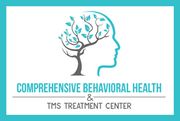How to Find Peace With Bipolar Disorder

The ups and downs of each day are what make life memorable, but for people with bipolar disorder, these fluctuations can be extreme. Luckily you’re not alone in this chronic illness—almost six million adults in the US alone are dealing with it. The experts at Comprehensive Behavioral Health of Staunton, VA, have plenty of experience helping patients find happiness alongside their disorder. Here, they list three helpful tips on how to find peace amid polarity.
3 Tips for Finding Peace With Bipolar Disorder
1. Accept Your State of Being
One of the keys to dealing with what may seem like a disadvantage is to consider it an asset—there’s a big difference between finding peace in spite of bipolar disorder and finding peace with it. Instead of judging yourself, focus on learning to accept your state of being, whether that’s happy or sad. The sooner you come to terms with your current emotions, the sooner you can rise above them and find balance. To get in touch with your feelings, start a daily journal and write in it whenever you feel a mood swing coming on. If you’re working with a therapist, you can use this journal to show them your emotional and cognitive patterns outside of the office.
2. Recognize & Dismantle the Patterns
 Once you have a tangible record of your thoughts and feelings, you can start to identify the ways in which they change. Whether a certain environment brought back painful memories, an estranged relative made an appearance, or you had one too many cups of coffee, you might be surprised at which triggers are commanding your manic or depressive episodes. Once you identify the triggers, you’ll have all the information you need to eliminate them or learn how to deal with them in a healthy way.
Once you have a tangible record of your thoughts and feelings, you can start to identify the ways in which they change. Whether a certain environment brought back painful memories, an estranged relative made an appearance, or you had one too many cups of coffee, you might be surprised at which triggers are commanding your manic or depressive episodes. Once you identify the triggers, you’ll have all the information you need to eliminate them or learn how to deal with them in a healthy way.
3. Try Meditation
Communicating with one’s own mind might seem impossible, but there’s a well-known exercise for that—meditation. As a mindfulness exercise, this ancient practice allows individuals with bipolar disorder to reflect on their thought patterns and redirect them to less extreme endpoints. Talk to your therapist about different techniques, as well as how to engage in more advanced meditation practices as you become comfortable with the experience.
While therapy and medication are often essential to finding relief from psychological disorders, the best solutions come from within. By working with the experts at Comprehensive Behavioral Health, you can identify the roadblocks standing in the way of your recovery and dismantle them one by one. For more information on their offerings, visit the website. You can also call (540) 688-2646 to make an appointment.
About the Business
Have a question? Ask the experts!
Send your question

